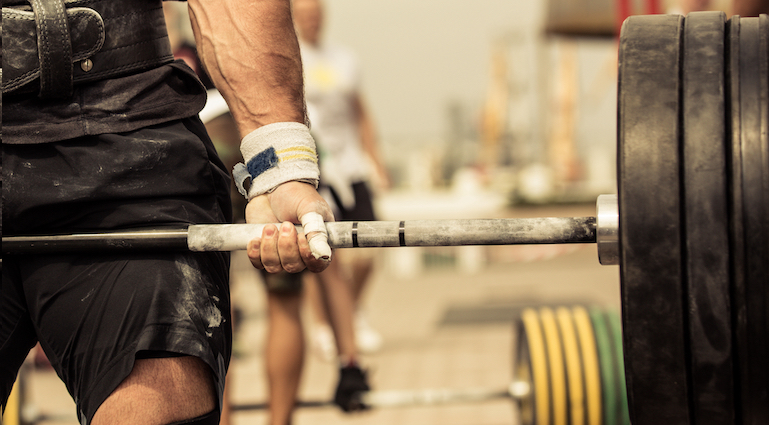How Pumping Up with Steroids Can Deflate Sleep

High blood pressure, heart issues, liver disease, acne, kidney damage, aggressive behavior—the misuse of anabolic steroids serves up a long list of dangerous health implications. Now, researchers are adding one more to the list: poor sleep.
A man-made version of testosterone, anabolic androgenic steroids (AAS)—which are different than the inflammation-fighting corticosteroids such as prednisone or cortisone—are used by doctors to treat hormone problems, delayed puberty, muscle loss in men, as well as spur muscle growth in people with certain cancers or AIDS.
However, athletes and bodybuilders—or those who just want to get ripped—have long abused this synthetic hormone to boost muscle mass or perform better while playing sports. It’s been suggested that the estimated three to four million people who have misused anabolic steroids may have a type of mental condition known as muscle dysmorphia, a preoccupation with the concern that their muscles are too small.
Despite potential muscle gain, the risks of taking anabolic steroids are high. While misuse has been previously linked to sleep problems, including worsened sleep apnea, the connection hasn’t been studied much. However, researchers in Norway recently examined the relationship between AAS, sleep quality, and mental health problems, and the results aren’t good.
The study included 68 men who had previously or were currently using steroids for at least one year and 58 men who haven’t used the hormone. A subgroup of 22 men were monitored over periods when they used steroids and then refrained from using them.

The researchers used two scales to evaluate the men’s sleep quality. One questionnaire asks about 19 different sleep components, such as disturbances, use of sleeping medication, sleep time, and daytime dysfunction. The other is a shorter questionnaire that focuses on difficulty falling asleep, awakenings during the night, trouble remaining asleep, and subjective feelings of sleepiness during the day.
Approximately 66% of the group that has used steroids disclosed sleep problems, and 38% reported using sleep aids. According to the longer questionnaire, the AAS group experienced significantly worse sleep quality than the group with no steroid use. In fact, the AAS group scored worse than the control group on all aspects of sleep quality except for sleep latency, the time it takes to fall asleep.
Participants who were withdrawing from steroids experienced the worst sleep quality. The study authors theorized it could be related to an association between sleep and a deficiency in testosterone known as anabolic steroid-induced hypogonadism.
Additionally, the group of men who have used steroids reported higher levels of anxiety and depression, which supports the well-known link between sleep quality and mental health. Researchers noted that it seems like depression symptoms, rather than anxiety, were more significant in the relationship between AAS use and sleep.
“The findings are worrying as sleep pathology can impair mental health and increase vulnerability to illness,” the study authors concluded. “Sleep problems may contribute to the increased levels of psychiatric and somatic pathology that sometimes accompany AAS use.”
Got a hot tip? Pitch us your story idea, share your expertise with SleepFoundation.org, or let us know about your sleep experiences right here.
References
7 Sources
-
MedLinePlus. (2021, June 2). Anabolic Steroids. Medlineplus.gov; National Library of Medicine.
https://medlineplus.gov/anabolicsteroids.html -
Klonteig, S., Scarth, M., & Bjørnebekk, A. (2024). Sleep pathology and use of anabolic androgen steroids among male weightlifters in Norway. BMC Psychiatry, 24, 62.
https://bmcpsychiatry.biomedcentral.com/articles/10.1186/s12888-024-05516-6 -
Cleveland Clinic. (2023, February 7). Anabolic Steroids. Cleveland Clinic.
https://my.clevelandclinic.org/health/treatments/5521-anabolic-steroids -
AlShareef, S., & Marwaha, R. (2020). Anabolic Steroid Use Disorder. PubMed; StatPearls Publishing.
https://www.ncbi.nlm.nih.gov/books/NBK538174/ -
Olivardia, R., Blashill, A., & Hoffman, J. (n.d.). Muscle Dysmorphia. BDD.
https://bdd.iocdf.org/expert-opinions/muscle-dysmorphia/ -
Buysse, D. J., Reynolds, C. F., Monk, T. H., Berman, S. R., & Kupfer, D. J. (1989). The Pittsburgh sleep quality index: A new instrument for psychiatric practice and research. Psychiatry Research, 28(2), 193–213.
https://www.sciencedirect.com/science/article/abs/pii/0165178189900474?via%3Dihub -
Shahid, A., Wilkinson, K., Marcu, S., & Shapiro, C. M. (2011). Jenkins Sleep Scale. STOP, THAT and One Hundred Other Sleep Scales, 203–204.
https://link.springer.com/chapter/10.1007/978-1-4419-9893-4_45












































































